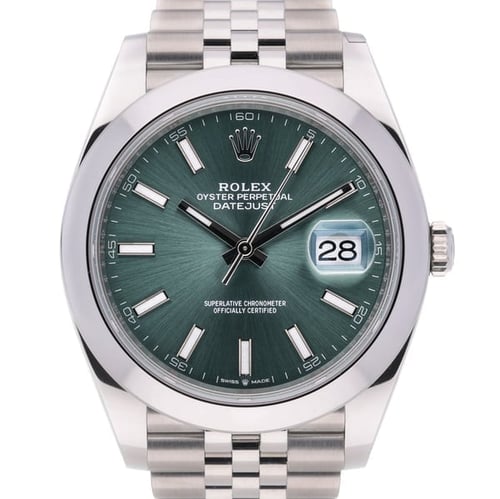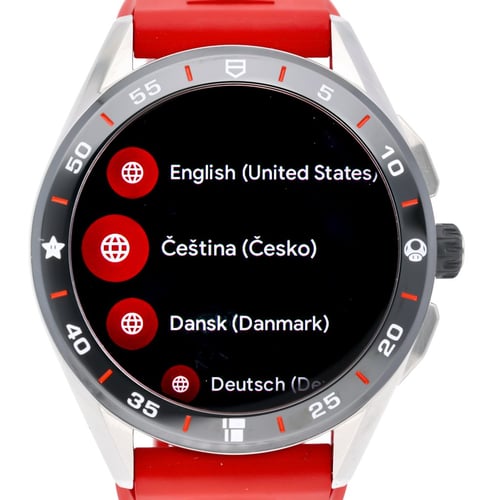When choosing a watch, one of the most fundamental decisions you’ll make is whether to go for a digital or an analog timepiece. Both types of watches offer distinct advantages and cater to different tastes, lifestyles, and needs. This article explores the key differences between digital and analog watches, helping you make an informed decision on which type suits you best.

Analog watches, with their traditional design and timeless appeal, have been a staple in horology for centuries. These watches typically feature a dial with hour, minute, and sometimes second hands, along with markers or numerals that indicate the time. Here are some reasons why many people prefer analog watches:
Classic Elegance: Analog watches are often associated with sophistication and elegance. Whether you’re dressing up for a formal occasion or looking for a versatile accessory for everyday wear, an analog watch can complement a wide range of outfits. Brands like Rolex, Omega, and Patek Philippe have built their reputations on the beauty and craftsmanship of analog timepieces.
Heritage and Craftsmanship: Analog watches are not just about telling time—they’re about appreciating the art of watchmaking. Many luxury analog watches feature intricate mechanical movements, showcasing the skill and dedication of master watchmakers. Owning such a timepiece is like owning a piece of history, where every component is crafted with precision and care.
Simplicity and Intuitiveness: Reading an analog watch is a straightforward experience, as the position of the hands provides an immediate sense of time. For many, this is more intuitive than reading digital numbers. Additionally, analog watches often have fewer features than digital ones, which can be a plus for those who prefer simplicity and ease of use.
Longevity: Analog watches, especially those with mechanical movements, can last for generations if properly maintained. They don’t rely on batteries, and with regular servicing, they can keep ticking accurately for decades, making them a long-term investment.
Digital watches, on the other hand, represent modern technology and functionality. They display the time in numerical format, usually on an LCD or LED screen, and often come packed with additional features. Here’s why digital watches might be the right choice for you:
Precision and Accuracy: Digital watches are incredibly accurate, often down to the second. They are powered by quartz movements or other electronic mechanisms, ensuring that they keep precise time without the need for manual adjustments.
Functionality and Features: One of the biggest advantages of digital watches is their array of features. Many digital watches include alarms, timers, stopwatches, backlighting, and even more advanced capabilities like GPS tracking, heart rate monitoring, and fitness tracking. For those who lead active lifestyles or require multiple functions in one device, digital watches offer unparalleled convenience.

Affordability: While there are high-end digital watches, many digital models are relatively affordable compared to luxury analog watches. Brands like Casio and Timex offer durable and functional digital watches at accessible prices, making them a popular choice for everyday wear.
Durability and Practicality: Digital watches are often designed with durability in mind. Many models are shock-resistant, water-resistant, and built to withstand harsh conditions, making them ideal for outdoor activities, sports, and work environments where reliability is crucial.
Ultimately, the choice between a digital and an analog watch comes down to personal preference and lifestyle needs. If you value tradition, elegance, and the art of watchmaking, an analog watch may be more suitable. On the other hand, if you prioritise functionality, precision, and modern technology, a digital watch might be the better option.
For those who find themselves torn between the two, hybrid watches offer a blend of both worlds. These watches feature analog hands combined with a small digital display, providing the classic look of an analog watch with the added functionality of a digital one. Brands like Garmin and Withings offer stylish and practical hybrid watches that cater to the needs of modern users without sacrificing aesthetic appeal.
Whether you’re drawn to the timeless elegance of an analog watch or the cutting-edge functionality of a digital one, both types of timepieces have their unique advantages. The key is to consider what you value most in a watch—whether it’s tradition and craftsmanship or modern technology and features. By understanding the differences and benefits of each, you can choose a watch that not only tells time but also suits your lifestyle and personal style perfectly.